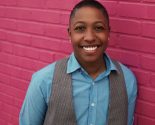
City’s pro-LGBTQ status can be useful in promoting media property
by Joe Siegel
Does a city’s or state’s stances on LGBTQ equality have an impact on the coverage or marketing of LGBTQ media outlets in those locations?
The Human Rights Campaign (HRC) just released its 2021 Municipal Equality Index (MEI), an annual report scoring cities across the United States on their dedication to LGBTQ equality.

This year, 506 cities were graded on five metrics: non-discrimination laws, municipality as employer, municipal services, law enforcement, and leadership on LGBT equality. One hundred and ten of the cities scored a perfect score of 100, including Los Angeles, Atlanta, and San Francisco. Of the 94 cities that earned the top score, 39 had more comprehensive non-discrimination laws for trans people than its state does; 84 have an openly LGBTQ+ elected or appointed official in senior leadership.
Georgia Voice editor Katie Burkholder is not surprised by the report.
“We exist to tell the stories of and properly represent the real members of Atlanta’s vast and diverse LGBTQ community. We’re funded by advertisers who see the value in Atlanta’s LGBTQ community. Without them — and by extension our readership, which consists of both of LGBTQ people and allies, of which there are an abundance due to Atlanta’s pro-LGBTQ attitude — we wouldn’t be able to function,” said Burkholder.
“While we are a publication representing the entirety of Georgia and the Southeast, there is a reason we are based in and focused on Atlanta,” Burkholder continued. “Because the city has the dedication to supporting and uplifting the LGBTQ community that it does, we are able to attract both local and national advertisers, maintain a strong and loyal readership, and openly and unapologetically report on the very real and important stories of the local LGBTQ community.”
In Los Angeles, progressive politics have long been prominent, but that doesn’t mean life is easy for LGBTQ people, particularly trans and youth, said Troy Masters, editor and publisher of the Los Angeles Blade.
“Since around the time of the heyday of Norman Lear (creator of 1970s sitcoms ‘All in the Family’ and ‘Maude’), things in L.A. have been becoming much more culturally liberal,” said Masters. “That has affected a lot of niche communities. Our trans community is at the forefront of all of that right now.”
Michael Yamashita, publisher of San Francisco’s Bay Area Reporter, notes HRC’s study has had little effect on the newspaper.
“We mention it when appropriate but that’s rare. Advertisers don’t base their decisions on HRC’s Equality Index. If anything, it reinforces the idea that San Francisco is welcoming and supportive of its LGBTQ residents,” Yamashita said.
Philadelphia and Dallas also scored a 100 percent from HRC.
“The MEI score doesn’t impact how we market or promote ourselves,” said Jason Villemez, news editor of the Philadelphia Gay News. “We simply strive to fairly and accurately cover newsworthy stories involving the local LGBTQ community. That quality coverage has always been the backbone of the paper, whether during times of stagnation or times of progress for LGBTQ civil rights. It’s great that the city has grown to be so pro-LGBTQ in the last few decades, and that atmosphere can certainly make it easier to find sources and stories, but it doesn’t impact how we market or promote the paper.”
“Dallas is very pro-LGBTQ and has been designated as the fifth largest LGBTQ city in the country,” added Leo Cusimano, publisher of the Dallas Voice. “Does that affect how we market Dallas Voice? You bet! From corporate America to government contracts to mom-and-mom shops, positioning ourselves as the premier LGBTQ media resource in this welcoming city is vital. Our message is simple. Loyalty!”
Cusimano said Dallas Voice has a unique partnership with VisitDallas. “The partnership has designated me as an ambassador for the city,” he noted. “Together, we create the premier LGBTQ Visitors Guide and together we push the glossy magazine across the country. Our unique selling point is the loyalty of our readers. In a big LGBTQ-friendly city, that message goes a long way to attract advertising revenue.”
TOP STORY
Volume 23
Issue 9








